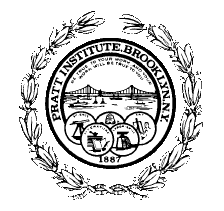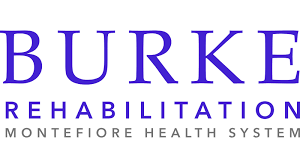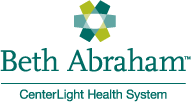6 New International Research Studies Prove the effect of the TTAP Method® on Cognition, socialization and staff satisfaction and productivity.
Hämeenlinna, Degree Programme in Creative Arts(HAMK)
Author: Tarja Heikkinen
Year 2010
Subject of Master’s thesis: Therapeutic Thematic Arts Programming
in psychiatric day centre
ABSTRACT
The aim of this thesis was to examine the impact of Therapeutic
Thematic Arts Programming, created for elderly people, when used in
Psychiatric day activity and to assess the usability of the method in
mental health work. The research question was approached from the
viewpoint of people recovering from mental health problems. The research
was implemented during twelve sessions of a psychiatric day activity
group. In this qualitative study the research methods used were
through observation and group interview, which was carried out
during the last group meeting. The theory of TTAP method was implemented
in this study and essential matters of mental health and mental health
rehabilitation as well as the groundings of art therapy were considered.
According to the research results the group’s experiences of TTAP
Method were positive and the method was regarded suitable for mental
health re-habilitation when the special characteristics are taken into
consideration in planning. The continuous process, where the chosen
theme was treated through various creative methods was considered the
benefit of the method. In addition, the group gained multiple experiences of
success. The activities strengthened both team spirit and enhanced emotional and social
interaction in the group. Through this pilot study, the development to apply the TTAP Method regularly to support the aims defined in mental health rehabilitation became an outcome to this research.
Further research could also be done on the effects of TTAP method on
Specific variables of personal empowerment and enhanced well-being.
Keywords: Therapeutic Thematic Arts Programming (TTAP), learning
styles, mental health rehabilitation, psychiatric day centre,
solution-focused, art therapies.
***
SEINÄJOKI UNIVERSITY OF APPLIED SCIENCES
Thesis abstract
Faculty: School of Health Care and Social Work Degree programme:
Master degree in Elderly Care
Author/s: Katja Sariola
Title of thesis: Experiences of the TTAP-method in elderly care
Supervisor(s): Aila Vallejo-Medina and Sirkka-Liisa Palomäki
Year: 2010
Number of pages: 156
Number of appendices: 3
_________________________________________________________________
ABSTRACT
The goal of this research was to implement, collect, and document structured experiences from using the 9-steps of the TTAP Method with people with dementia. The TTAP Method® construct connects different arts and activities through the use of themes. The method works in groups, but proves to be very individual. In this case we chose the spring as a theme
for the activities. The target place was Mathilda koti in Jyväskylä,
which is a residential home for 17 persons with dementia. The nurses at
Mathilda koti took part in this research by assisting and observing the
activities. After the groups meeting we collected their observations
which were analyzed and proved significant later. The research was a functional, action-process research study. Data was collected through observation, written recording of behaviors, diary writing, photographing and summary recording in this research.
The nurses observed the group activities and then wrote daily observational notes on the individuals’ behaviors within the group. The observations were an important part of the work. There were four groups in Mathilda koti. The spring theme was handled with meditation, music,
food (baking), painting and dancing. I also asked them what spring means to
them ( as a mind-map of person centered activity).
The TTAP Method® proved to provide significant changes in the behavior of the group participants diagnosed with dementia. It was also found to decrease and prevent challenging aggressive behaviors of the participants over the 12 week period. The method accentuates similarity, skills that come from earlier life and encourages using and strengthens skills of those persons diagnosed with dementia still has.
Keywords: TTAP method, dementia, creativity, activities, sensory stimulation
***
Tampere University of Applied Sciences
Master´s Degree in the Field of Social and Mental Health Care
Degree Programme
in Health Promotion
Care of Ageing and Long-term patients
HÄIVÄLÄ, ELINA & JASKARI, TUULIA:
”Tuntuu rinnassa ja saa päässä raksuttamaan” – The Impact of the
TTAP Method on the Social Capacity of Dementia Residents
Thesis 178 pages, appendices 5 pages.
November 2010
______________________________________________________________________
ABSTRACT
This paper is based on a workplace development programme and is linked
to the Government Demke Project for the Aging. The purpose of the research was to obtain, by way of qualitative observation, information on the effect that the TTAP
(Therapeutic Thematic Arts Programming) Method ® has on the social
capacity of dementia patients in a Sopimusvuori dementia care home. The
aim was to learn whether the TTAP method improves the dementia
residents’ social capacity and what impact the TTAP method has on the
residents’ social capacity from the perspectives of the individual and
the community.
The study was executed as action research in cooperation with a group
of experts. It originated from the writers’ interest in the subject and
the desire to test the practical and replicable implications of the TTAP Method® by
creating groups specifically for dementia care. The research data was
collected and summarized qualitatively. The effects of the TTAP Method ® on social
capacity was assessed with data collection from evaluation forms describing the dementia
residents’ social capacity as well as by observational recordings of the cognitive interactions of the TTAP groups.
It can be concluded from the results of this research study that the TTAP
Method ® improves a structure which naturally enhances the social capacity of dementia residents by supporting an individual’s social abilities within a group setting and strengthening the social capacity within the Dementia home community. In addition, the TTAP groups improve dementia residents’ general well-being. The TTAP Method ® provides the means to give an individual more time and space to present his or her personality. Sharing recollections and
feelings in a TTAP Method® group brings one considerable pleasure. In a community, the TTAP method deepens the feeling of communality by e.g. increasing mutual empathy inside the group.
In the future, the activities provided should be diversified according to the dementia
residents’ personal needs.
Keywords: Social capacity, TTAP method, Dementia, Provided activities,
Dementia care home.
***
SEINÄJOKI UNIVERSITY OF APPLIED SCIENCES
Abstract
Faculty: School of Health Care and Social Work
Degree programme: Master’s in Elderly Care
Author/s: Laura Hanski and Kaisu Kohola
Title of thesis: “We are all artists” Experiment of Therapeutic
Thematic Arts Programming (TTAP Method) at Hoivakoti Kissanpäivät
Supervisor(s): Sirkka-Liisa Palomäki, Kari Jokiranta
Year: 2009 Number of pages: 176 Number of appendices: 6
_________________________________________________________________
ABSTRACT
Activities for the residents are often missing in retirement homes. The
goal of this thesis was to try Therapeutic Thematic Arts Programming at
Hoivakoti Kissan-päivät and observe how it affects the residents. The
TTAP method is based on goal-directed action, it is a creative program.
This present work is part of DEMKE-project, whose aim is develop
quality of life for the demented elderly. Our priority was to establish
creative activities as a part of nursing home`s week. Our function was
to offer enhanced experiences to elderly, staff and close relatives. Thesis
actualized as co-operative development. Activity groups gathered five
times. We used observation, interviews, memos and photographing.
Research materials analysis considered TTAP method`s effects.
Our theme was nature. When the activity group gathered, we listened to
music, painted, made sculptures, tasted vegetables, smelled scents and
exercised.
TTAP Method was found out to be sensible and it suited the
nursing home well. Creative program is a good fit for demented people.
The program was found to activate memories, reminiscing, and arouses past personal images.
At the same time it activates brain functions and gives exercise to cognitive skills.
One function was to get close relatives participate in creative
activities and even get them to guide group moments. Everyone has creativity,
and you need only structure a theme and enthusiasm and willingness to use it.
Keywords: TTAP method, creative activity, senses, demented residents
*******************************************
SEINÄJOKI UNIVERSITY OF APPLIED SCIENCES
THESIS ABSTRACT
Faculty: Social- and Health Care Department
Degree programme: Master of Social Services
Authors: Peltokangas, Eija and Rantala, Marjaana
Title of the thesis: Enriching the daily life in a service center for
demented people.
Tutor: Perttula, Katariina
Year: 2009 Number of pages: 75 Number of appendices: 1
ABSTRACT
Thesis was made as an action research in a service center for demented
people, Kanervakoti, one of the participant units in Demke-project. The
purpose was to develop action for elderly persons to increase their
quality of life and welfare. In practice, this meant organizing weekly
events (Wednesday Feast) together with third sector agents. During the
process a supplemental program was created ac-cording to the theory of
Levine Madori. The intention of the supplemental program was to lower
the staff’s threshold to instruct activities. Research objectives were
to find out how the development work has succeeded and what kind of
effects it has for the elders and the work community.
The most of the data was collected by participant observation. The
viewpoints of the elderly people and the observations were noted in
research diaries. The staff’s views were received with theme interview
for the focus group. The results were evaluated with data based contents
analysis because the theory changed during the process as it is supposed
to do in action research.
The main result was that Wednesday Feast and the supplemental program
which was designed according to Levine Madori’s theory enriched the
inhabitants’ lives and increased their welfare. Wednesday Feasts
worked as planned but the staff didn’t start to organize the
supplemental program. However, it caused other beneficial and positive
effects such as the staff’s threshold to instruct activities lowered and the
amount of the organized activities increased. As the synergy of the
development work the inhabitants’ ability to function, vitality and
involvement has strengthened and gotten better. It can be stated that
development work is beneficial as it caused multiple positive results
with staff and the elderly people.
Keywords: development, dementia, institutional attendance, group
activity, welfare
***
Tampere University of Applied Sciences
Master´s Degree in the Field of Social and Health Care
Degree Programme in Health Promotion
Care of Ageing and Long-term patients
HOIVALA, TUULA & STJERNA, MARJA-LEENA:
Thesis 169 pages, appendices 4 pages.
April 2010
ABSTRACT
The goal of this study was to develop the working strategies and
empower the resources of the employees’ in the home for the demented
elderly. The purpose was to find ways to improve employees’ well-being
at work and through this increase also the residents’ care and quality of life.
The study had a resource-based perspective.
The bases of the study originate from the growing challenges of healthcare organizational functions that were identified in the initial inventory and the TTAP Method used was
an action based research study. These challenges are further seen in Finland’s
growing work force in the community health settings. Data for this study was collected with both
quantitative and qualitative methods. To measure occupational well-being
a staff questionnaire with multiple-choice questions, open questions and
operational indicators was used. The quality of life of the person diagnosed with dementia
was assessed through staff observation. Resource orientation and social
capital were the key concepts for the well-being at work. The
TTAP Method was proven as a structured modality which enhanced quality of life for both the
person diagnosed with dementia and staff satisfaction.
Benefits included an increase positive feeling of the healthcare staff in work experiences and increased job satisfaction increased as the research was carried out. However, the most significant development was the work community adopting dialogical and reflective practice among employees. The changes in the work practices improved the work flow and had a direct impact on the care and quality of life of the residents at the dementia home. The challenge for the healthcare community workforce is to continue developing and to maintain the social capital and well-being at work and to involve all the employees to be part of this development. A positive attitude towards development and equal atmosphere within the working community
requires an open dialogue, mutual trust and development of the communal
atmosphere.
One specific focus for development in the dementia home is
to increase this sense of communality so that it touches both the staff
and the inhabitants. Increasing social activities and carrying out group
guidance side-by-side with individual encounters is also seen as a
factor that will increase cognition, socialization and the overall quality of life of the person diagnosed with dementia.
Keywords: well being at work, resource orientation, social capital,
nursing the demented, quality of life of the demented.









